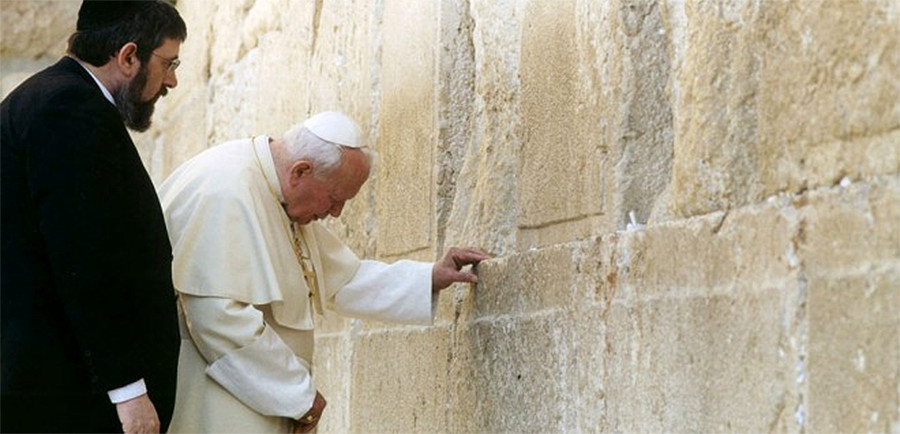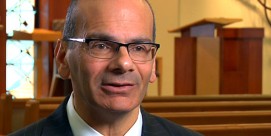Jonathan A. Greenblatt: How Nostra Aetate Transformed Catholic-Jewish Relations
The promulgation, on October 28, 1965, of Nostra Aetate, the Second Vatican Council’s Declaration on the Church’s Relations with Non-Christian Religions, may be the most important moment in post-Holocaust Jewish-Christian relations and interfaith relations writ large.
In its fourth chapter, Nostra Aetate effectively overturned centuries of what the noted French Jewish historian Jules Isaac termed “the teaching of contempt,” namely, that the Jewish people as a whole were responsible for the crucifixion of Jesus and therefore they had been rejected by God and their covenant revoked. The devastating effect this theological teaching had on Jewish communities through the centuries has been well documented by historians, and while it is essential to differentiate between Christian anti-Judaism and Nazi anti-Semitism, without the former the latter would not have been possible.

In light of this history, the Church’s unequivocal declaration that the Jews should not be held accountable for the death of Jesus and its repudiation of anti-Semitism were truly revolutionary. The affirmation that “God holds the Jews most dear” and the call for mutual understanding and dialogue inaugurated a new era of positive relationship and engagement that, mere decades before, was inconceivable. In the past 50 years, the Church has continued the process that began with Nostra Aetate. It has developed a sophisticated theology of Jews and Judaism expressed in documents like “We Remember: A Reflection on the Shoah” (1998) and “The Jewish People and the Sacred Scriptures in the Christian Bible” (2001).
Another important moment was the Vatican’s recognition of the state of Israel and the establishment of diplomatic relations in 1993. While some details of the formal agreement between the two sovereign nations remain to be worked out, the forging of bonds between Israel and the Holy See is deeply meaningful for the Jewish people.
In the years since 1965 there have been moments of tension and conflict. All relationships require hard work, and misunderstandings are inevitable. The commitment of both Jews and Catholics to overcoming the past, and especially the warm personal relationships that have developed at the highest levels as well as locally, have made constructive engagement and honest exchange possible, even about difficult subjects. The relationship is strong enough that it has continued despite unresolved issues, such as the opening of the Vatican archives from the Second World War and the proposed canonization of Pius XII.
We are now in the fifth papacy since the promulgation of Nostra Aetate. Each pope has, in his own way, added to the structure that has been built over the years. John Paul II’s visit to Israel in 2000, including his moving meeting with Holocaust survivors at Yad Vashem and his placing a prayer of apology for past wrongs committed by Catholics against Jews in the Western Wall in Jerusalem are emblematic of the essential role of the popes in Catholic-Jewish reconciliation. The friendship of Pope Francis with Rabbi Abraham Skorka is itself one of the fruits of Nostra Aetate and a model for Jews and Catholics around the world.
We live in a world in which religion is often seen as the cause of discord and violence. Nostra Aetate and the new relationship between Jews and Catholics prove that, even after two millennia, religious hatred can be overcome.
Jonathan A. Greenblatt is CEO and national director of the Anti-Defamation League.




